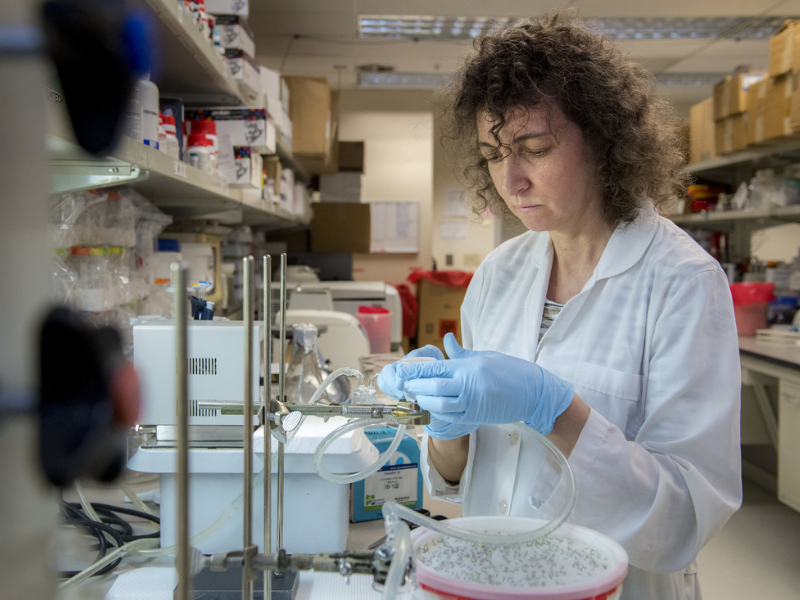Tulane researchers uncover vital information about mosquito metabolism

Mosquitoes play a pivotal role in the transmission of many pathogens that affect human populations, making research into the biology of mosquitoes an important part of public health discovery and policy determination.
Female Aedes aegypti mosquitoes are estimated to infect more than 400 million people annually with viruses that cause dengue, chikungunya, Zika and yellow fever.
A new study by Tulane School of Public Health and Tropical Medicine researchers has provided more information about how mosquitoes metabolize their food.
In “Pyruvate kinase is post-translationally regulated by sirtuin 2 in Aedes aegypti mosquitoes,” which appeared in the November issue of Insect Biochemistry and Molecular Biology journal, the authors discovered how two proteins involved in glucose metabolism physically interact in the fat body of Aedes aegypti mosquito females to allow them to adapt and survive different nutritional conditions.
(Fat body is an organ in mosquitoes that performs similar functions that liver and adipose tissue do in humans.)
Principal Investigator Dr. Patricia Y. Scaraffia, associate professor in the Department of Tropical Medicine and Infectious Disease, explained further.
“The results uncover the remarkable capacity of certain proteins such as AaPK and AaSirt2 to work in concert to tightly modulate how mosquitoes respond to starvation,” Scaraffia said. “We found that both AaPK and AaSirt2 confer to the Aedes aegypti mosquitoes a metabolic plasticity to maintain glucose and nitrogen homeostasis.”
More broadly, the study underscores the importance of basic science and a multidisciplinary approach in researching these topics, and it offers a tantalizing glimpse at a much greater understanding of mosquito metabolism -- and how that information might be used to control mosquito populations in the future.
“The findings represent an advance in our understanding of mosquito protein-protein interaction, which opens new and exciting research questions,” Scaraffia said. “Figuratively, the findings are the tip of the iceberg, to give you an idea of the complexity of mosquito metabolism, and the “secrets” that mosquitoes hold to survive.”
Other authors included Dr. Natthida Petchampai, Prashanth Balaraman, Brendan H. Carter, and Dr. Cecilia G. Sánchez, all from Tulane, as well as Dr. Jun Isoe and Max Oscherwitz from the University of Arizona.
This work was financially supported by the TU Corine Adams Baines Professorship Award, VBIDRC pilot grant, and U.S., National Institutes of Health, National Institute of Allergy and Infectious Diseases Grant R01AI146199 (to Dr. Scaraffia).
